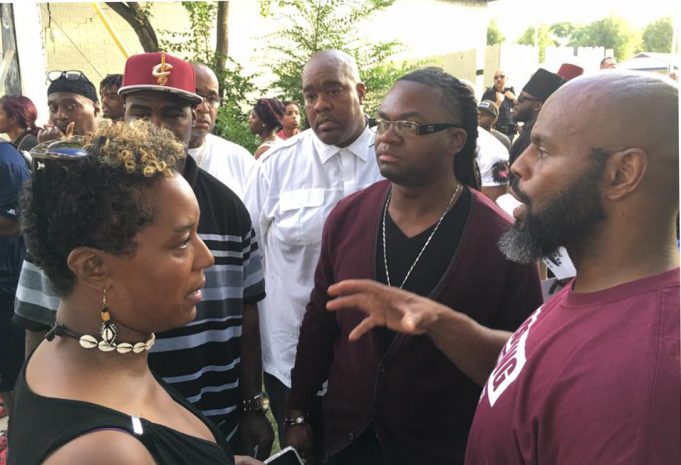Milwaukee is at a crossroads.
We have two options. Doing the same thing and expecting a different result. Or we can be bold and chart a new course.
We need to begin by changing the relationship between the community and law enforcement, whether it’s police, the sheriff or correctional workers. Here are some changes I think we can make right away:
1)Communication
The conversations that have come out of the work of the Ziedler Center must play a critical role in identifying root cause of the tension between the community and law enforcement. They are already holding conversations that are bringing the community and law enforcement together in several police districts.
This issue is raw. It hurts. We haven’t forgotten about those of the past like Ernest Lacy and Daniel Bell or those of the not too distant past like Frank Jude and Derek Williams or the recent wounds of Dontre Hamilton, Jay Anderson and Sylville Smith.
Disparate treatment has caused the community to lose trust that must now be rebuilt. Before we can solve anything, we have to admit we have a problem.
2)Training
To solve this problem, we need to increase training for items like cultural competency, de-escalation, mental health awareness and curb-side manor. The mayor hasn’t required this training previously despite my several years of urging the Mayor and the Fire and Police Commission, we’ve not done the work. However, others have embraced these ideas and shown they can work.
Just look at Chicago, where the police department recently announced that its requiring officers to undergo de-escalation training. This training will give special attention to reducing situations involving the use of force and improving interactions with individuals with mental health concerns.
It isn’t enough to give condolences to the family and to say we are committed to community policing practices while we fail to implement at an intensive rate consistent training. We need to align the law enforcement culture to reflect the moral obligation of honor and duty that comes with the oath of office. Implicit in “protect and serve” should be a respect for life.
3)Action
All the talk and training in the world won’t help if they don’t do. Respecting people and respecting life means starts with only pulling over or detaining people for probable cause, not judging someone by their gender and skin color. Action includes being respectful during curb-side interactions during traffic stops. It also means that if you are taking into custody, you aren’t murdered like Terrill Thomas, who was killed of dehydration while in the Milwaukee County Sheriff’s Department’s custody.
Action also means trusting the community. Curfews and fences at Sherman Park doesn’t say “I trust you.” It says, “I control you.” Instead of traveling the country stumping for Trump, Sheriff Clarke should be home doing his job, reaching out to the community, rebuilding trust and rebuilding our community. He should be working with the Department of Corrections on training programs for those in his custody so they don’t end up incarcerated in a state or federal prison one day.
Don’t think for a minute I’ve left the state off the hook. Action means taking care of juvenile inmates here at home, rather than shipping them off to Lincoln Hills where they are subject to abuse and neglect.
Grow our way out. We cannot police our way out of this problem. But we can grow our way out. People need hope, and that means job skills and a healthier outlook on life. Urban agriculture can solve so many of our community’s problems. We spend too much time and money dealing with our problems and not enough solving our problems. With a little investment and some training, urban agriculture will help break down food deserts, increase health outcomes and reduce crime. According to the Journal of the American Medical Association, gardening increases health and reduces crime. Urban agriculture is the industry of the future that can turn our city around. Teaching people to use what God gives us through composting and growing is just the first step. Then, we need to grow those skills into an industry that can help us get back to basics and show people a better way to give back.
Stay tuned. Next legislative session, I will introduce a series of policies that will help create a pipeline to this emerging industry.




























